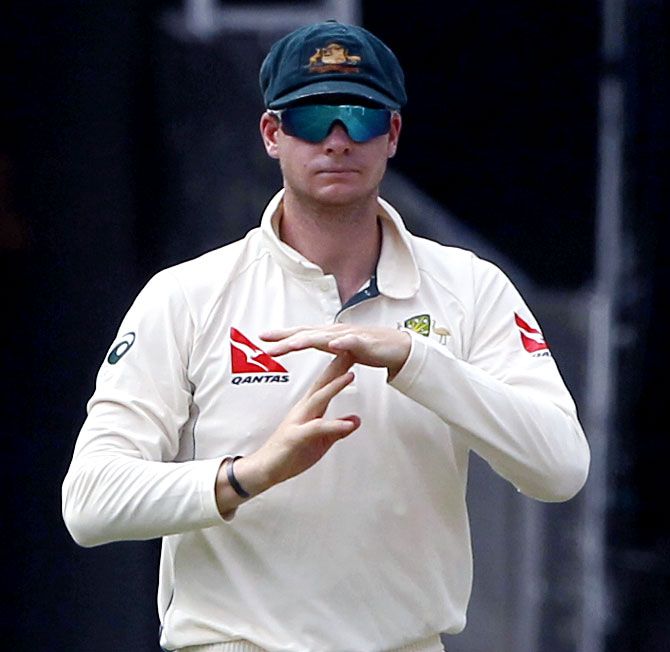'If people think there's no cheating out there, they're crazy'

The Australian ball-tampering scandal continues to ripple far beyond cricket circles, with captain Steve Smith portrayed as arch-villain in the sorry sga.
A tide of moral outrage has flowed ever since Smith admitted conspiring to tamper with the ball during the third test against South Africa in Cape Town last week.
Prime Minister Malcolm Turnbull described it as a 'shocking disappointment', sponsors of Australia's national sport are said to be reviewing their involvement and Smith has been banned for one Test with his future as captain in serious doubt.
It was even the lead story on BBC's News at Ten on Sunday.
The good and the great of world cricket are queuing up to take pot shots at Smith and his senior players for what has been described as an act of cheating, though Australia still lost the match comfortably.
The fallout has been extraordinary, considering those in numerous sports have found ways of pushing rules to and over the boundary without quite such widespread condemnation.
Doping is regarded as one of the most unpalatable forms of cheating, but there are many other examples of sportsmen and women trying to gain an edge, from a soccer players diving to win penalties to tennis players taking well-timed 'toilet breaks'.
Some are more sophisticated, far more sophisticated than Australia's opening batsman Cameron Bancroft rubbing dust into a piece of sticky tape to create a rudimentary piece of sandpaper with which to work on the ball.
In European rugby in 2009 Harlequins winger Tom Williams bit into a fake blood capsule so he could go off with a 'blood injury' and be replaced by specialist kicker Nick Evans in a Heineken Cup quarter-final against Leinster.
Harlequins' director of rugby at the time, Dean Richards, was banned from coaching in Europe for three years for his role in the so-called bloodgate controversy.
Cycling has been scarred by the use of illegal drugs but it is not always what riders put in their bodies.
Belgium's Femke Van Den Driessche was banned for six years after a motor was found in her bike at an under-23s world championship cyclo-cross race in 2016.
Formula One motor racing also has a long record of teams trying to gain a less than sporting advantage, from illegal fuel, deliberate crashes and team orders. In 2007 McLaren was found guilty of stealing confidential data from rivals Ferrari and fined 50 million pounds ($71 million).
In boxing, welterweight Antonio Margarito was banned for a year after a 2009 fight against Shane Mosley in which plaster of Paris, which could set like concrete, was found on his hand wraps inside his boxing gloves.
Baseball, the game most closely associated with cricket in the United States, is no stranger to ball-tampering either.
One of the favourite tricks of pitchers is to apply pine tar to the ball or change its surface with hidden sandpaper. Batters have been known to 'cork' their bats for greater power.
Golf, a sport with rules so draconian that players are often penalised for miniscule indiscretions, is not immune either, according to Vijay Singh's former caddie Kip Henley.
"Cheating happens almost every single round," Henley said last year in an interview with website Golf.com.
"If people think there's no cheating out there, they're crazy. Some of it's intentional, some of it's just ignorance."













 © 2025
© 2025